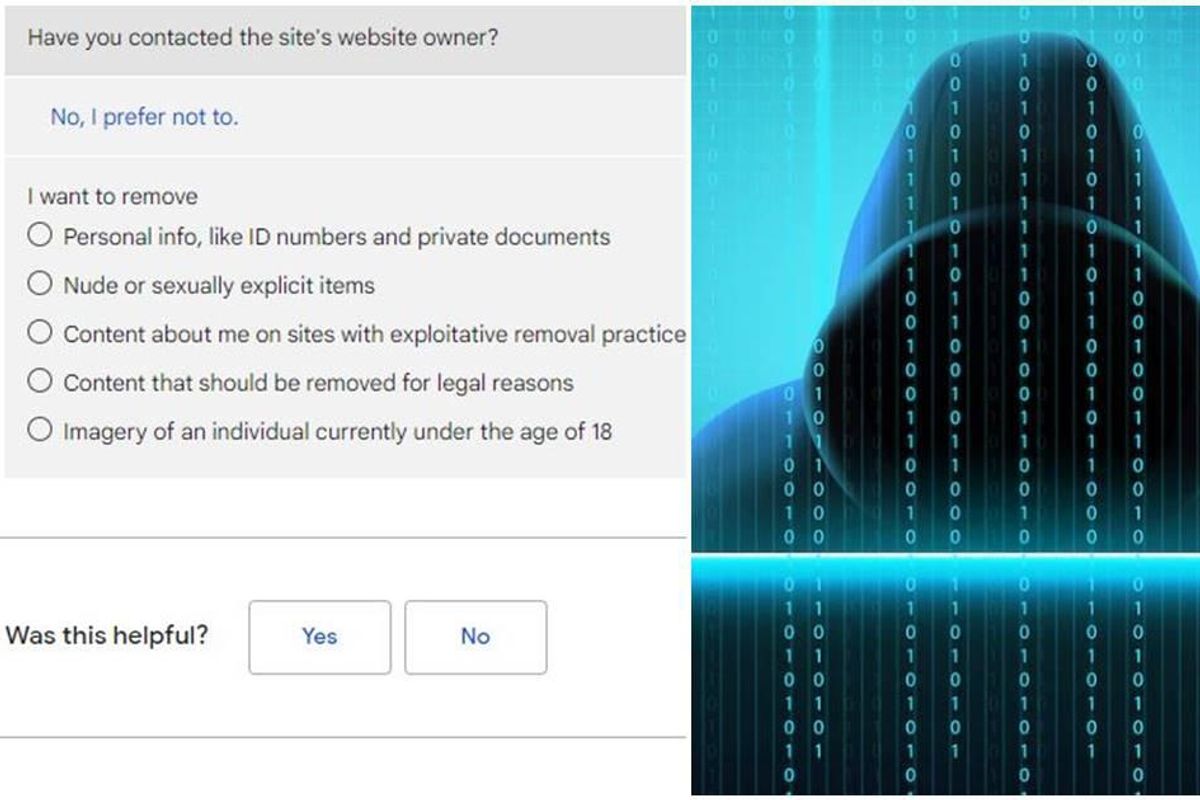Google now allows you to remove your personal information from its search results
We deserve control over our personal information.

Google's new personal information removal submission page.
In the internet era, the idea of personal privacy is all but a myth.
With a few keystrokes just about anyone can get your home address, phone number, email, age and the names of your family members. The fact that this information is readily available puts us all in the dangerous position of being the victim of fraud, stalking and violence.
What makes the situation even worse is that our information was put online without any of our consent.
The good news is that Google just made a big change that gives us all a little more control over our personal information. On April 27, the company announced it will allow anyone to request removals of their personal information from its Search feature.
“Open access to information is a key goal of Search, but so is empowering people with the tools they need to protect themselves and keep their sensitive, personally identifiable information private. That’s why we’re updating our policies to help people take more control of their online presence in Search,” Michelle Chang, Google’s Global Policy Lead for Search, announced on the company’s blog.
"[T]he internet is always evolving—with information popping up in unexpected places and being used in new ways—so our policies and protections need to evolve, too," Chang continued.
The new policy also allows people to request the removal of personal information in Search that could be used for financial fraud such as log-in credentials or account numbers.
Although Google’s new policy is a step in the right direction, it doesn’t cure the problem altogether. "It's important to remember that removing content from Google Search won't remove it from the internet, which is why you may wish to contact the hosting site directly, if you're comfortable doing so," Chang said.
Do you have any personal information that pops up in Google Search that you’d like to have removed?
Visit the topic’s support page, scroll down and click the “Start removal request” link. As you follow the prompts you will be able to specify the personal information that shows up in Search and will be asked to share a list of relevant search terms, such as your full name, maiden name and nickname. You’ll also be able to share supplemental details before submitting the request.
After your request is submitted, you should receive an email from Google confirming the request was received. It’s unclear how long the removal process will take.
Google’s new policy changes come during a surge in online fraud. The Federal Trade Commission reported that consumers lost $5.8 billion to scammers in 2021, a jump of 70% from the previous year.
A big portion of fraud is committed through online scams as well as identity theft and telephone solicitations.
In an attempt to give the FTC more power to fight back against fraud, U.S. Senator Maria Cantwell, chair of the Commerce Committee, will introduce legislation this week to make it easier for the Committee to sue deceptive companies and scammers.
“If the FTC remains disarmed of this critical authority, millions of consumers and small businesses who’ve been scammed, swindled, or locked out of competitive marketplaces will never be made whole,” Cantwell said in a statement.
This article originally appeared on 05.03.22
- what-happens-to-your-personal-data-online - Upworthy ›
- Please read this before you post another RIP on social media ›
- Google tweeted about ending online harassment. But it was the next ... ›
- Guy who cut down his phone usage by 80% shares his tips - Upworthy ›
- Google's 2022 search trends tell us about ourselves - Upworthy ›
- 13 tips and tricks for a better Google search experience - Upworthy ›




 The scientific method as it was meant to be used.
The scientific method as it was meant to be used.  What are you planning on doing with that lipstick?Courtesy of Kerry Hyde
What are you planning on doing with that lipstick?Courtesy of Kerry Hyde  You want me to sit on that?Courtesy of Kerry Hyde
You want me to sit on that?Courtesy of Kerry Hyde  High five for an A+!
High five for an A+! 
 A UPS truck with package deliveries.Image via Wikipedia
A UPS truck with package deliveries.Image via Wikipedia
 There's no one right way for an athlete to look. Photo by
There's no one right way for an athlete to look. Photo by 
 Aging comes with ups and downs.
Aging comes with ups and downs. You may want to just chill at home, and that's okay.
You may want to just chill at home, and that's okay. There's a freedom that comes with getting older, too.
There's a freedom that comes with getting older, too. Aging also come with loss.
Aging also come with loss.